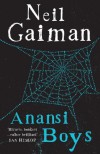William's Book Blog
Mostly book reviews. Very rarely I'll allow William Campbell Powell (author) to write a blog entry on publishing activity, but he's under orders to keep that stuff over on his Facebook page and on http://williamcampbellpowell.com
Currently reading
It's the Bees Knees

#TheBees, by @LalinePaull
In concept, this is an adventurous novel, which makes it a challenge to review.
It's fiction, but it's clear that Paull has done a lot of research into the subject matter, so it's almost a dramatisation of biological science, just as so many early SF novels were a dramatisation of the science of space-flight.
The question is whether it succeeds as fiction in its own right.
This boils down to whether the novel has a story to tell about the human condition. If we can't see humanity through the lens of the bees - whether it's in the personalities of Flora, or Sir Linden or the Queen - or any of the others - then the book fails.
The book had many resonances for me. The whole background of a stratified, hierarchical society calls to mind Orwell's 1984, etc., and the works of Solzhenitsyn. It also recalled the strict hierachies of the mediaeval monastic orders. It brings out the very human struggling for power, the politicking that opposes ordinary people attempting to better themselves, to fulfil their potential, or just to do the right thing in a tight spot.
Curiously, it also resonates with the stage. I was reminded of Capek's "The Insect Play", which uses an insect metaphor for its satire. And because of the dance aspect, I could also imagine that it would translate well into a ballet. Yes, really.
In term of plot, I don't think it held too many surprises, but that's not a bad thing in this case. The life of an insect is well mapped-out, after all, and having read about insects from boyhood to the present day, it all rang true, even the "twist".
Every novel should take you on a journey. Perhaps to somewhere you've never been . Or perhaps to somewhere familiar, but by a different route. Maybe faster, maybe slower.
Some novels take you to an amusement park, to Disneyland. They try to hide the destination and surprise you, like a stage magician. This novel takes you round the science museum. The guide doesn't hurry you. She lets you wander round, peer closely at the exhibits, and look deep inside them, even into their souls. There's your answer. You do indeed get to see inside the souls, and see all too clearly those resonances of the human condition.
Rather than repeat myself, I'll direct you to my interim posts:
http://williamcampbellpowell.booklikes.com/post/1139294/the-bees-interim
http://williamcampbellpowell.booklikes.com/post/1131280/compton-crook-bee-ware
The ending? Appropriate, satisfying.
 1
1








